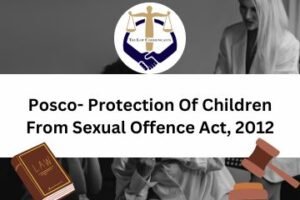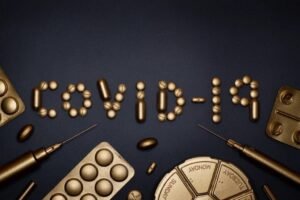Pre-Classical School and Early Beliefs of Criminal Law
Introductions
Crime is there since the world was created and it has become an inevitable part of society. The branches of crime lay deep in our society and to deal with crimes and wrongs there were different methods used from time to time the methods of believes or religions or the thoughts of being born as a criminal to the point where it is considered that the person is criminal due to situations. There had been different schools of law that tells about how criminals were treated in historic or prehistoric times.
History reveals to us that in primitive society and the early medieval period, the thinking of people in those times were predominated by religion and believes, and all human relations were regulated through myths and superstitions prevailing in a particular society.
This, in other words, meant that little attention was devoted to the motive, environment, and psychology of the offender in the causation of crime. Moreover, the punishments were haphazard, irrational and arbitrary in nature in the absence of a definite principle of criminal justice administration. Until the end of the seventeenth century, this situation prevailed around the globe.
After this, with the modernization in the society, some people step up and put their focus on analyzing the crime causation. This finally led to the emergence of criminology as a branch of knowledge through the development of different schools of criminology.
A large number of theories has been propounded in an attempt to find a rational explanation of crime. Sins, evil spirits, disease, heredity, economic maladjustment, etc. are multiple factors that are put forward to explain deviant behaviours.
With the advance of behavioural sciences, monogenetic explanation of human conduct is no longer valid and the modern trend is to adopt an eclectic view about the genesis of crime. However, some criminologists still tend to lay greater emphasis on physical traits in order to justify an exclusive resort to correctional methods for the treatment of offenders.
It has been generally accepted that a combination of a variety of factors such as social, cultural, moral, ethical, biological, physical, technological, etc. are contributory to crime causation, therefore, the incidence of crime cannot be attributed to any single factor.
As pointed out by G.B. Vold, some prominent factors affecting crime causation are physical-built or deformity, religious faith, moral imbecility, emotional disturbance, infantilism, birth trauma, masochistic death wishes, infidelity, feeblemindedness, lust for sex, power or money, etc.
These heterogeneous factors are known to be associated with crime and criminality needed to be organized, arranged and integrated by means of explanatory theories systematically explaining the causation of crime and criminality. The scientific explanations of criminal behaviour are stated in the form of different theories, known as various ‘Schools of Criminology’.
Pre-Classical School of Criminology
Saint Thomas Aquinas (1225-1274) was a great dominant figure in scholastics in the period of the seventeenth and eighteenth century in Europe. The dominance of religious in-state activities was the chief characteristic of that time. In political spheres, thinkers such as Hobbes and Locke were concentrating on the social contract as the basis of social evolution. The concept of the divine right of the king advocating the supremacy of the monarch was held in great esteem.
The concept of crimes was vague and obscure, as the scientific knowledge was yet unknown. It was believed that a man’s action was controlled by power or spirit and he is simple by nature. It was believed it was the power of ‘Demons‘ or ‘Devils’ under whose influence a man commits a crime. Thus an offender commits a wrongful act under the influence of an external superpower and not by its own will.
No attempt was, however, made to probe into real causes of crime. This demonological theory of criminality propounded by the exponents of pre-classical school acknowledged the omnipotence of spirit, which they regarded as a great power.
The crimes and criminals were considered as evidence of fact and the individual is in the possession of ‘Devil‘ and ‘Demon‘ and the only way to cure it was a testimony of the effectiveness of the spirit. Worships, sacrifice and ordeals by water and fire were usually prescribed to specify the spirit and relieve the victim from its influence. Trial by battle was a common mode of deciding the fate of the criminal.
The right of society to punish the offender was, however, well recognized. Torture and pain were considered the only method of cure as the offender was regarded as an innately deprived person. The evolution of criminal law was yet at a rudimentary stage.
Hobbes suggested that fear of punishment at the hands of the monarch was a sufficient deterrent for the members of early society to keep them away from sinful acts which were synonymous with crime.
Thus, the theosophists, notably St. Thomas Aquinas and the social contract writers such as Donte Alighieri, Machiavelli, Martin Luther, and Jean Bodin provided immediately background for Beccaria’s classical school at a later stage. The pre-classical thinking, however, withered away with the lapse of time and advancement of knowledge.
Even in ancient India, the principle of divine intervention especially through ordeals was considered vogue. To determine the guilt of the offender in the ancient judicial system the oath and or deals played a very important role. The justification advanced for these rituals was the familiar belief that “when the human agency fails, recourse to divine means of proof becomes almost inevitable”. Though these practices appear to be most irrational and barbarous to the modern mind, they were universally accepted and were in existence in most Christian countries till the thirteenth century.
Keywords: Pre-Classical School, Pre-Classical School of Criminology and Pre-Classical School of Criminology in India.
Previous Posts
Environmental Impact Assessment in India
Privatization Of Natural Resources: A Critical Threat To Sustainable Development
A Socio-legal study of the rights of traditional forest dwellers
Autism; A Socio-Legal Study On Mental Health Care Laws In India




